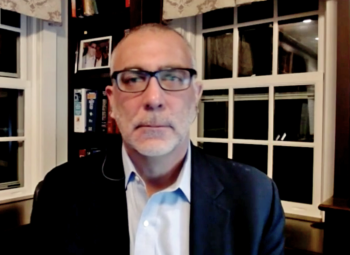Doctor seeing breakthroughs with anti-malaria drug —
By Mark Ellis –

Nearly all the severe COVID-19 patients seen by one health center were diabetic, pre-diabetic, or had a high Body Mass Index (BMI). The doctor heading the center is also labeling a regimen combining an anti-malaria drug with an antibiotic as a game changer.
“The more we see this disease, the more we understand that severe, rapid COVID especially is in diabetics or pre-diabetics,” Dr. Stephen M. Smith told Laura Ingraham on her April 1st program. Dr. Smith is founder of the Smith Center for Infectious Diseases and Urban Health in East Orange, New Jersey.
Among 72 COVID-19 patients treated at the Center, 21 were pre-diabetic (29.2%), 34 were diabetic (47.2%), and the average BMI of severely ill patients was 30.7.
“Above 25 (BMI) you are overweight and above 30 you are obese,” Dr. Smith noted. “I am looking at 19 or 20 patients that are intubated and 18 of the 20 are diabetic and two are pre-diabetic. We don’t have anybody in our group of over 80 that’s been intubated that was not diabetic or pre-diabetic. We have seen younger patients with severe disease that have a very high BMI. We have patients that are over 300 pounds. We are seeing a lot of this.”

Dr. Smith believes that others are noticing the same data. “The Seattle group published their data in the New England Journal of Medicine saying that 58% of their ICU COVID patients was diabetic and their average BMI was 33, which is morbidly obese.
“That fits with our data. But what people haven’t focused on yet is that the pre-diabetics are also at risk, especially if they have a high BMI.”
Younger people have much better outcomes with COVID. “We haven’t had anyone under 70-years-old that didn’t have a very high BMI or was pre-diabetic or diabetic get seriously ill.
“This is amazing stuff and it is unprecedented,” Dr. Smith noted.
His center is also using an anti-malaria drug, hydroxychloroquine, in a regimen combined with azithromycin. “No person who has received five days or more of the hydroxychloroquine and azithromycin has been intubated,” Dr. Smith noted.
Intubated means respiratory failure and the patient has to be put on a ventilator. “The chances of that occurring by chance, according to my sons, who did stats for me, are point zero zero zero something.”
“It is absolutely a game-changer, which supports the French data. Now you have an intra-cohort comparison saying that this regimen works. I think this is the beginning of the end of the pandemic. I am serious.”
A survey of 6,227 physicians in 30 countries found that 37 percent rated hydroxychloroquine the “most effective therapy” for combating the potentially deadly illness, according to the results released Thursday.
The survey, conducted by the global health care polling company Sermo, also found that 23 percent of medical professionals had prescribed the drug in the US — less than other countries, according to the New York Post.



